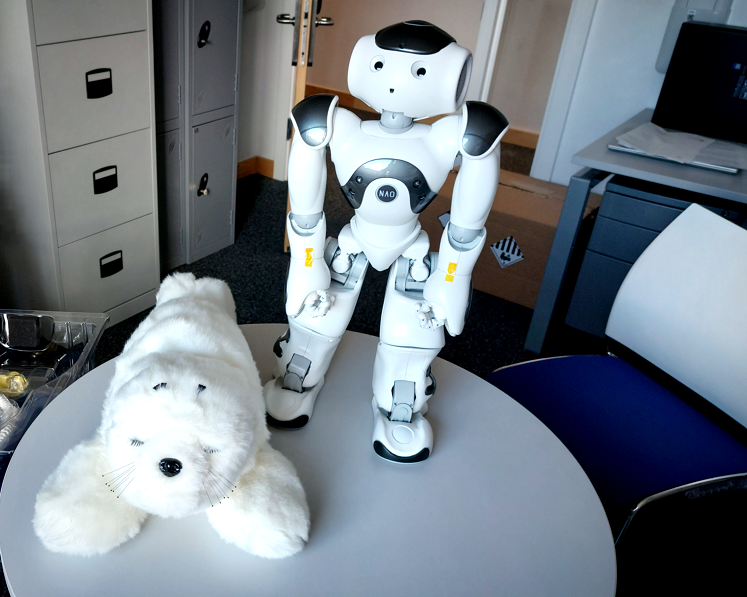Significant investment has been made into social robots to enhance critical discussions into the role of emerging technology in care settings.
The University of Lincoln, UK has purchased two robots for their School of Health and Social Care: one is a PARO harp seal initially designed to fulfil the psychological requirements of enrichment and joy for senior dementia patients; the second is NAO, a more advanced programmable robot that might come to be seen as a ‘personal assistant’.
Michael Rowe, Associate Professor (Digital Innovation in Health & Social Care), said: “The 2019 Topol Report urged the NHS to develop a workforce that will be able and willing to transform it into a world leader in healthcare AI and robotics, so it seems plausible that we will soon see efforts to recruit healthcare professionals with the interdisciplinary skillsets and expertise to lead clinical teams that include non-human actors that are likely to include robots.”
PARO was first made in 2004 by Japanese engineer Dr Takanori Shibata. Pet therapy has long been considered beneficial for certain conditions, hence, the PARO robots aim to simulate this engagement without the hygiene and other impracticalities of live animals.
The manufacturers advertise the seals as suitable for treating emotional and behavioural distress, cognitive disorders, developmental disorders, PTSD and social isolation in addition to their original function as support for dementia patients.
NAO has been purchased with the aim of exploring more advanced features of social robots in the context of health and social care. In contrast to the PARO seal, NAO has the ability to walk, articulate and recognise objects, allowing it to, for instance, fetch a phone for its user via voice command.
The superior range of NAO equips the robot with the potential to act as a non-human team member following further development and understanding. Through introducing students to robotic models as part of the simulation programme in their undergraduate training, they will gain familiarity and a useful critical perspective to navigate their possible uses of social robots in the future.
An analytical approach will be taken to the presence of robotics in health and social care by encouraging students to discuss concerns surrounding privacy and ethics. Questions may be posed regarding the psychological impact of having personal conversations with a robot or the risks should robots collect a patient’s data.
Michael Rowe explains: “In addition to preparing our students to work in the NHS of the future, we also need to prepare critical evaluators of the technology, so that our graduates are able to ask the kinds of questions that ensure patient needs and therapeutic relationships are always our primary considerations.”
The limited understanding of how well the robots really work provides plentiful opportunities for new lines of research inquiry. Colleagues or students in Computer Science, Psychology and Engineering may be able to collaborate with Lincoln’s School of Health and Social Care on unique interdisciplinary studies concerning social robotics.



